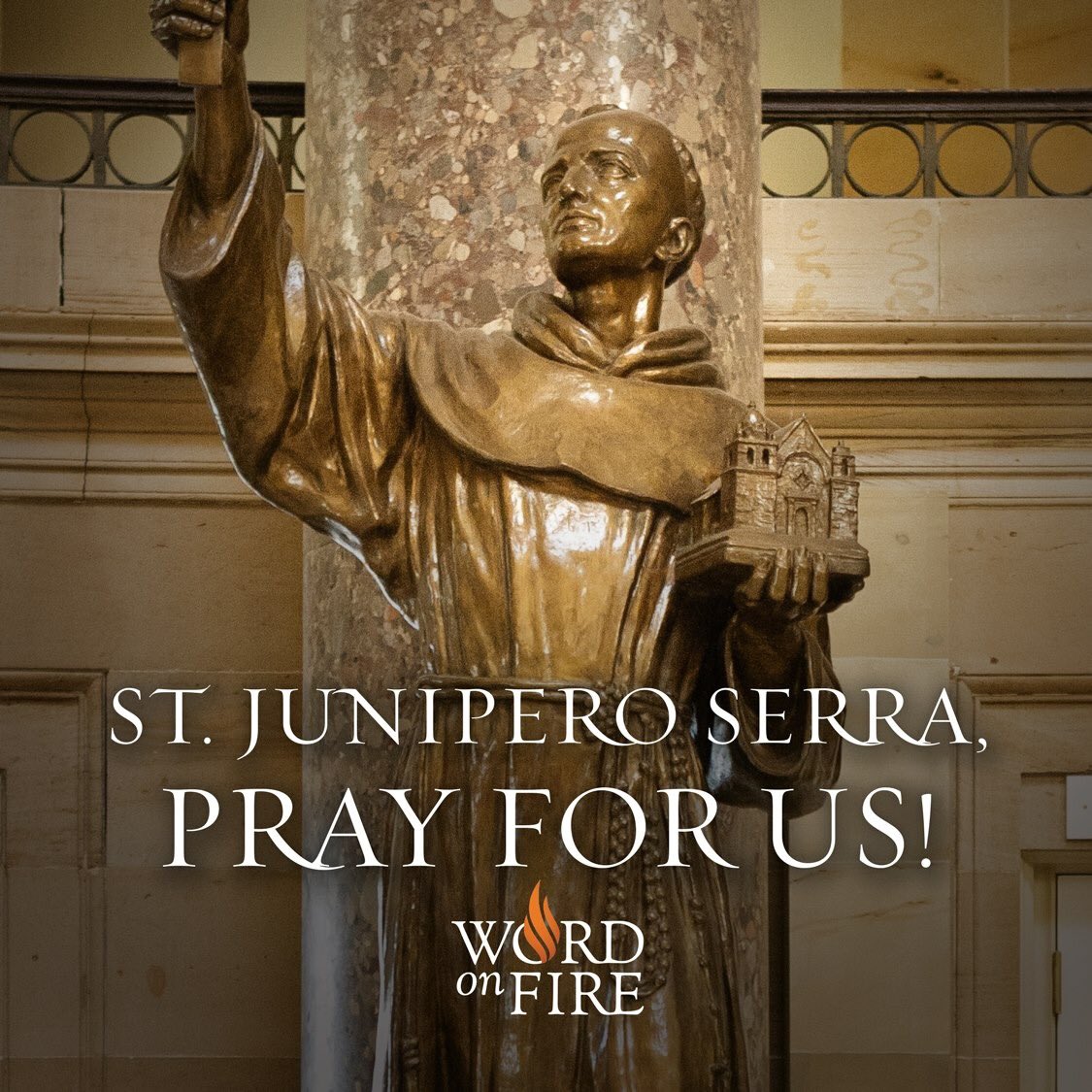You may have guessed that I am a proponent of making use of new technology to tell the Good News. But sometimes the new technology can get the best of us. Become a distraction. An obstacle. There are always warning signs. In his Sunday bulletin this weekend, Father George W. Rutler cautions (and empowers):
A father recently bemoaned the fact that the iPod had deprived him of his teenage son. That is the son’s fault, but it is also the father’s fault. As Christ is shepherd of our souls, using rod and staff to guide us — the rod to knock us on the head when we are in danger of straying and the staff to gently encourage us — so is a parent a shepherd of the young, and sometimes the rod must smash the iPod, but never without the staff gently urging the youth along the right path. This is easier for me to say since I have never been the father of a teenager, and there are those who curiously list this among the sacrifices a priest must make. A pastor, though, is definitively entrusted with the care of a flock, as the Pope himself has a very large flock, and when the rod must sometimes be used, those who need to be tapped into moral consciousness will object at first, but on the last day they will be thankful that they were saved from going off a cliff. The rod without the staff would certainly be a battle-axe, and the staff without the rod would be a weak crutch.
The Good Shepherd says that “the sheep hear his voice, and he calls his sheep by name” (John 10:3). Like the father excommunicated from his son by the iPod, God Himself can be blocked out of our consciousness if we hear only our own voice, living in a “virtual reality” sustained by the imaginings of the ego. Jesus told Peter “Tend my lambs. . . Feed my sheep . . . Feed my sheep” (John 21:15-17). The sheep are those who hear God but need encouragement. The lambs are those who seem to have blocked out God, Who continues to call to them. Once they have been brought to consciousness, sometimes by the shock of crises in life, which can strike like a rod, then God leads them with His shepherd’s staff into green pastures and “restores my soul” (Psalm 23:3).
Prayer is conversation with God, and it is often difficult for us because, by misuses of our free will, we can “put Him on hold.” When we do not answer, God leaves us a recorded message through the Scriptures, the saints and the Liturgy. The Latin word for deaf is surdus, and man does become an absurdity to his very self when he willfully listens only to himself. When the dying St. Stephen said he could see the Son seated at the right hand of the Father, the mob covered their ears, but one of them listened. When St. Paul was converted, he said: “you also, who have heard the word of truth, the gospel of your salvation, and have believed in him, were sealed with the promised Holy Spirit” (Ephesians 1:13).
Pope Benedict talked similarly, unsurprisingly, recently. In his Communications Day message this year, he said:
Silence is an integral element of communication; in its absence, words rich in content cannot exist. In silence, we are better able to listen to and understand ourselves; ideas come to birth and acquire depth; we understand with greater clarity what it is we want to say and what we expect from others; and we choose how to express ourselves. By remaining silent we allow the other person to speak, to express him or herself; and we avoid being tied simply to our own words and ideas without them being adequately tested. In this way, space is created for mutual listening, and deeper human relationships become possible. It is often in silence, for example, that we observe the most authentic communication taking place between people who are in love: gestures, facial expressions and body language are signs by which they reveal themselves to each other. Joy, anxiety, and suffering can all be communicated in silence – indeed it provides them with a particularly powerful mode of expression. Silence, then, gives rise to even more active communication, requiring sensitivity and a capacity to listen that often makes manifest the true measure and nature of the relationships involved. When messages and information are plentiful, silence becomes essential if we are to distinguish what is important from what is insignificant or secondary. Deeper reflection helps us to discover the links between events that at first sight seem unconnected, to make evaluations, to analyze messages; this makes it possible to share thoughtful and relevant opinions, giving rise to an authentic body of shared knowledge. For this to happen, it is necessary to develop an appropriate environment, a kind of ‘eco-system’ that maintains a just equilibrium between silence, words, images and sounds.
There are definitely poisonous weed in the eco-system if those ipod earphones are always on.












